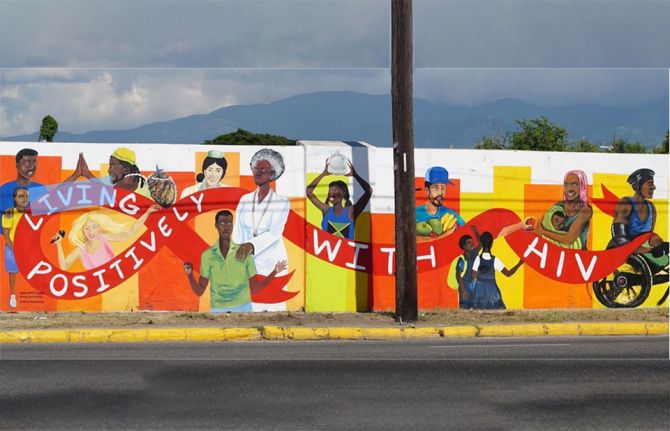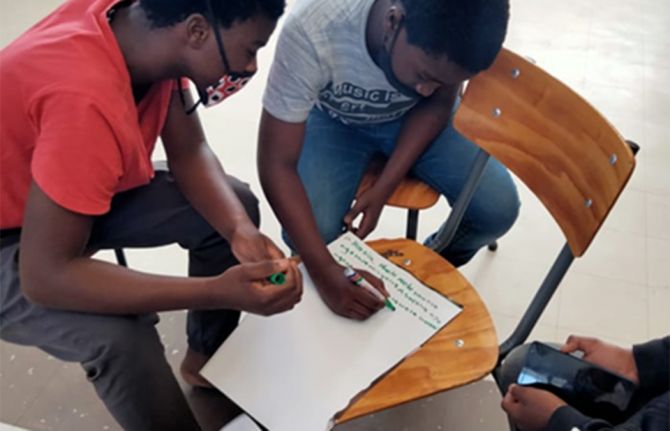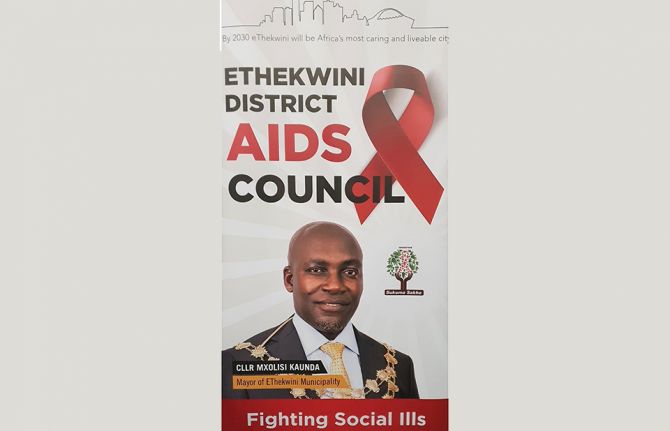




Feature Story
Four years of the Fast-Track cities project—what have we achieved and learned, and what is next?
21 February 2022
21 February 2022 21 February 2022Implementation of the joint UNAIDS–International Association of Providers of AIDS Care (IAPAC) Fast-Track cities project started in 2018 under the management of UNAIDS and IAPAC, with financial support from the United States Agency for International Development. Recognizing the important role that cities play in achieving national and global HIV targets and in ending AIDS by 2030, the project aims to provide essential and strategic technical support to 15 high-burden cities to accelerate their HIV responses. The 15 cities (Blantyre, eThekwini, Jakarta, Johannesburg, Kampala, Kigali, Kingston, Kinshasa, Kyiv, Lagos, Lusaka, Maputo, Nairobi, Windhoek and Yaoundé) account for about 3 million people living with HIV. The project is implemented in close collaboration with local governments and stakeholders and takes into account the local contexts, epidemics and priorities. Technical support is provided for the development and implementation of city HIV strategic plans, creating an enabling environment for optimized HIV service delivery, strengthening data collection, analysis and use and building clinician and community capacity to facilitate service optimization and to eliminate stigma in health-care facilities.
Implementation over the past four years has achieved important results and led to significant changes at the city level. With the sustained support and commitment of mayors and city leaders, the project has catalysed action at various levels. Improved coordination, strengthened partnerships, civil society engagement and innovation to reach key and vulnerable populations have led to an increased uptake of HIV services, and cities have showed leadership during the COVID-19 pandemic to ensure that services continued to be delivered. Improved strategic information and monitoring and evaluation systems are now allowing cities to track the HIV response and to report on their epidemics. Close to 10 000 people have been reached with IAPAC-led training activities.
During a recent UNAIDS webinar, UNAIDS country staff providing support to four of the participating cities shared some of their experiences.
The city of Kingston, Jamaica, home to 35% of all people living with HIV in the country, is implementing activities to address some of the remaining challenges related to laws and policies that have affected society.
“One of the routes that we have taken through the Fast-Track cities project is to work more closely at the community level, as this is where we see the biggest challenge related to stigma and discrimination,” said Ruben Pages Ramos, UNAIDS Community Support Adviser for Jamaica.
In an attempt to address stigma, UNAIDS, in partnership with the Jamaica Network of People Living with HIV, initiated stigma-free spaces to sensitize the public and to ensure that places of business, health, education, justice, entertainment and worship are respectful, inclusive and transformative. Kingston municipality has been declared as the first stigma-free space in Jamaica and the mayor is committed to make Kingston a stigma-free city.
In eThekwini (Durban), South Africa, the National Association of Child Care Workers was contracted as part of a community project to support children and young people in Inanda, the largest township in Durban. The main objective was to reach children and young people with HIV services, ensuring that people living with HIV remain in care, and to address stigma in the community.
“This catalytic project achieved amazing results, and if taken to scale we could do amazing things,” said Miriam Chipimo, UNAIDS Fast-Track Adviser, South Africa.
Key results during a short, five-month, period of implementation included the initiation of four community action groups for young people to provide counselling and behaviour change communication support, reaching close to 2500 young people with HIV testing services (with people who are HIV-positive initiated on antiretroviral therapy), while close to 2000 community members were reached with anti-stigma messages on HIV, tuberculosis and COVID-19.
Through the mayor’s office and the department of health, key stakeholder engagement and linkages to United States President’s Emergency Plan for AIDS Relief and community-based organization activities in Inanda were also supported.
In Lusaka City, Zambia, the Fast-Track cities project has been catalytic in strengthening the coordination mechanisms for a multisectoral approach to the HIV response in the city. Lusaka has established a Project Technical Committee with representation from the District HIV and AIDS Committee, the District Medical Team, civil society, HIV implementing partners, networks of people living with HIV and the Key Population Consortium.
“Given the legal environment in Zambia, it’s very difficult to bring the lesbian, gay, bisexual, transgender and intersex and sex worker communities to the table, but under the Lusaka City Fast-Track project they have been brought together and they engage with civic leaders, the management teams and various stakeholders,” said Kenneth Mwansa, UNAIDS Community Support Adviser for Zambia.
Recognizing the need for innovative approaches to reach populations at higher risk of HIV, Lusaka City has also established and capacitated an Innovations Team, with representation from sex workers, lesbian, gay, bisexual, transgender and intersex people, people living with HIV and adolescent and young women organizations.
Linked to the development of a five-year strategic action plan to guide the city’s HIV response, a functional monitoring and evaluation unit was established, for the first time in the city, to coordinate HIV data collection at the district level and to better monitor the HIV epidemic and response.
Coordination of the HIV response in Kampala, Uganda, has improved owing to the full functionality and involvement of the Division AIDS Committee, while strong partnerships have been built with the Kampala Capital City Authorities (KCCA) and the Alliance for Mayors and Municipal Leaders on AIDS in Africa.
As part of the activities to reach and engage key populations and young people in Kampala, maps were produced on key population-friendly HIV services within the city, and a mobile app was launched in 2021 to increase the uptake of HIV prevention and treatment services among key and vulnerable populations. KCCA staff and key population representatives participated in the development of the app and were trained in its use. The app is hosted on the official city website to ensure sustainability. “In addition to the mapping of services, the app includes a section on recommendations and review of services. It also provides information by type of services, such as pre-exposure prophylaxis, for example,” said Tseday Alemseged, from the UNAIDS Country Office for Uganda.
Additionally, activities are ongoing in Kampala to sensitize the community around HIV prevention, vulnerability to severe COVID-19, equity and stigma and discrimination.
Good practices and strategic information from the other participating cities are being published on the Fast-Track cities interactive map, available at https://fasttrackcitiesmap.unaids.org/.
The project will continue until mid-2023. Lessons learned from the project will be used to inform the development of an action framework to guide and support the HIV response in urban settings, in line with the Global AIDS Strategy 2021–2026: End Inequalities, End AIDS.



